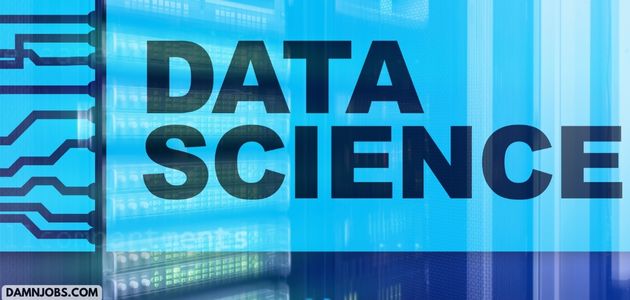Pursuing a career in data science is an exciting choice for individuals interested in statistics, programming, and problem-solving. Data science is a multidisciplinary field that involves extracting knowledge and insights from structured and unstructured data.
Here’s everything you need to know about entering this dynamic and rapidly growing field, including educational requirements, essential skills, job responsibilities, potential work environments, and career advancement opportunities.
Educational Background
- Bachelor’s Degree: Most data science positions require at least a bachelor’s degree in data science, computer science, statistics, mathematics, or a related field. These programs typically cover fundamental topics like programming, statistical analysis, machine learning, and data management.
- Master’s Degree and PhD: Many data scientists hold advanced degrees. A master’s degree in data science or a related field can provide more specialized knowledge and make candidates more competitive in the job market. PhDs are often necessary for research-oriented positions or roles in academia.
- Bootcamps and Online Courses: For those changing careers or looking to gain specific data science skills quickly, bootcamps and online courses are viable options. These intensive programs focus on practical skills like programming in Python or R, using machine learning libraries, and implementing data visualization tools.
- Certifications: Certifications can also bolster a resume, providing proof of proficiency in specific areas such as big data, data analysis, or certain technologies and tools. Popular certifications include Certified Analytics Professional (CAP) and various platform-specific certifications like those offered by Google or Microsoft for their cloud data services.
Required Skills
- Statistical Analysis and Math: Strong skills in statistics and mathematics are crucial for interpreting data and applying various data science models and algorithms.
- Programming: Proficiency in programming languages such as Python, R, and SQL is essential. Python is particularly valued for its versatility and the extensive libraries it offers, such as Pandas, NumPy, SciPy, and scikit-learn.
- Machine Learning: A solid understanding of machine learning techniques and algorithms is becoming increasingly important in many data science roles.
- Data Visualization: The ability to create clear visual representations of data findings is essential. Tools like Tableau, Power BI, or programming libraries such as Matplotlib and Seaborn are commonly used.
- Data Wrangling: The ability to clean and organize raw data is critical, as data often comes in unstructured or corrupted forms.
- Problem-Solving: Data scientists must be excellent problem solvers, able to apply logical and analytical thinking to complex data puzzles.
- Communication Skills: Effective communication is key to translating technical data insights into understandable and actionable information for non-technical stakeholders.
Job Responsibilities
- Data Collection and Cleaning: Gathering data from multiple sources, cleaning it to ensure accuracy, and preparing it for analysis.
- Data Analysis and Modeling: Applying statistical analysis and modeling techniques to data to identify trends, make predictions, and solve problems.
- Developing Algorithms and Statistical Models: Creating custom algorithms and models to extract insights from large datasets.
- Implementing Machine Learning Models: Designing and implementing predictive models using machine learning technology.
- Data Visualization and Reporting: Presenting data insights visually and writing reports to communicate findings to stakeholders.
Work Environments
Data scientists work in a variety of sectors including technology, finance, healthcare, consulting, government, and academia. They may find roles in large tech companies, financial institutions, consulting firms, research organizations, or as part of dedicated data science teams in diverse industries.
Career Progression
- Junior Data Scientist: Entry-level positions where you’ll likely focus on data cleaning, preliminary analyses, and learning from more experienced colleagues.
- Data Scientist: As you gain experience, you’ll take on more complex projects, possibly managing entire data pipelines or developing sophisticated models.
- Senior Data Scientist/Lead Data Scientist: Senior roles often involve leading project teams, strategic planning for data usage, and making key decisions about tools and methods.
- Data Science Manager/Director: At this level, you’re responsible for overseeing a data science department, shaping its goals, and aligning projects with broader business objectives.
- Chief Data Officer: A C-suite role responsible for governing enterprise data management, enhancing data technology, and driving data utilization throughout the organization.
Conclusion
A career in data science can be highly rewarding, given the field’s impact on decision-making and strategic planning across numerous industries. Aspiring data scientists should focus on developing a robust set of technical skills, supplemented by strong analytical and communication abilities. Continual learning and adaptation to emerging technologies and methodologies are essential for long-term success in this evolving field.

